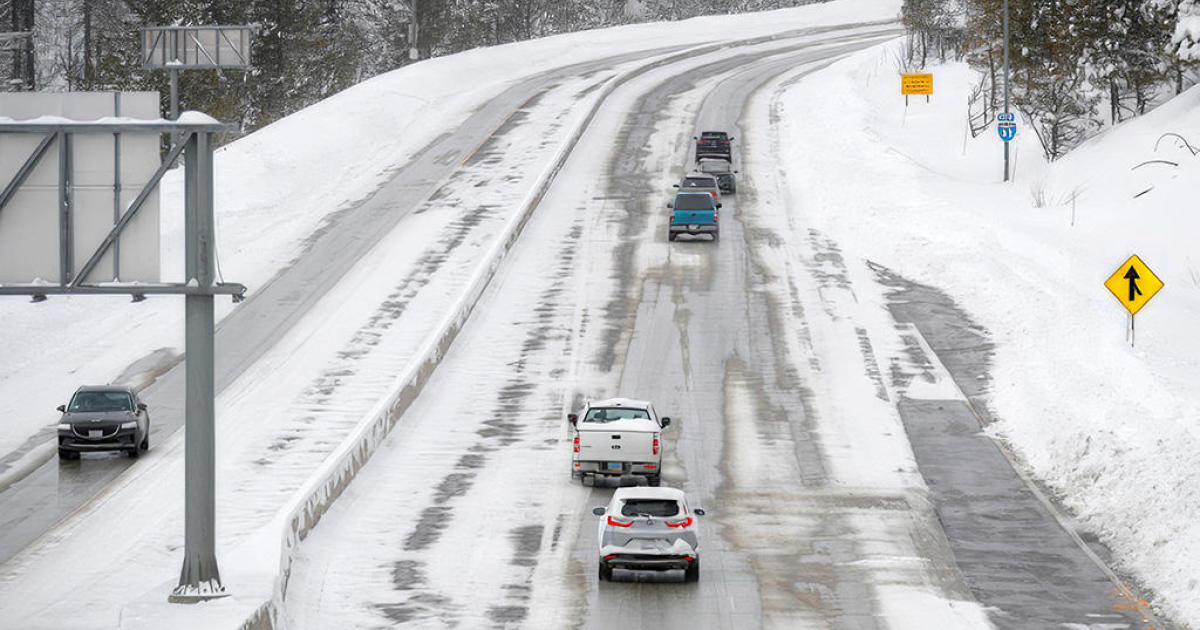California Hit Hard By Romaine Lettuce E Coli Outbreak
By CHRISTINE SAMRA
KPIX 5
SAN FRANCISCO (CBS SF) -- Pennsylvania, California and Idaho have been the hardest hit in a multistate E. coli outbreak linked to romaine lettuce grown in Arizona, according to federal health officials.
The Centers for Disease Control and Prevention said there had been 18 cases of E. coli infections reported in Pennsylvania, 13 in California and 10 in Idaho.
In all, federal health officials said, there have been 84 E. coli cases spanning 19 states linked to Arizona-grown romaine lettuce. Colorado, Georgia and South Dakota were the three new states added to the list Wednesday.
The CDC said 42 people have been hospitalized so far, including nine people who have developed a type of kidney failure called hemolytic uremic syndrome. There have been no reported deaths.
Health officials said that most people develop symptoms like diarrhea, severe stomach cramps, and vomiting -- and recover within a week.
But what had health officials so concerned is that there "is a higher hospitalization rate than usual for E. coli O157:H7 infections, which is usually around 30 percent."
Researchers are trying to determine why the Arizona strain is so potent.
"What's concerning me at this point is there's an unusually high hospitalization rate," said Bill Marler, a food safety lawyer who is representing Louise Fraser, who is suing Panera Bread.
Fraser claims she contracted E. coli after eating romaine lettuce at one of their restaurants in New Jersey and, as a result, was hospitalized for weeks. She says she was diagnosed with kidney failure, which required several blood transfusions.
"The restaurant, the grocery store is responsible for any of the food that they sell you," said Marler. "If it is contaminated with a pathogen, it's defective. The chain of distribution that supplied that is ultimately responsible."
Panera Bread officials told "CBS This Morning" they "don't comment on pending litigation," but said they "have re-supplied with romaine from other regions."
Last week, the CDC issued a warning last week, telling consumers to avoid eating romaine lettuce.
"Do not buy or eat romaine lettuce at a grocery store or restaurant unless you can confirm it is not from the Yuma, Arizona, growing region," the federal health officials said. "Unless the source of the product is known, consumers anywhere in the United States who have any store-bought romaine lettuce at home should not eat it and should throw it away, even if some of it was eaten and no one has gotten sick."
The CDC warning continued: "Product labels often do not identify growing regions; so, throw out any romaine lettuce if you're uncertain about where it was grown."
Symptoms of this strain of E. coli include severe stomach cramps, vomiting, and diarrhea, which is often bloody, officials said. Anyone with these symptoms should see a health provider immediately and report their infection to local departments of health and social services.
Infections from these bacteria often take three to four days to develop. Most are gone within a week, but some can last longer and be more severe, the CDC said.
E. coli are a diverse family of bacteria that can be found in the environment, in foods and in the intestines of people and animals. Most strains are harmless. To avoid becoming infected with a harmful strain, the CDC recommends using proper hygiene; cooking meat at proper temperatures; avoiding raw milk, unpasteurized dairy products and juices; and not swallowing water when swimming.
Since lettuce is suspected to be the cause of the current outbreak, would it help to wash your greens before eating? No, said Ian Williams, chief of the CDC's Outbreak Response and Prevention Branch.
"This bacteria can actually get inside the lettuce leaf," he said. "Washing it doesn't make it safe.
The CDC said the investigation into the source of the outbreak was continuing and it would provide updates when more information is available.



